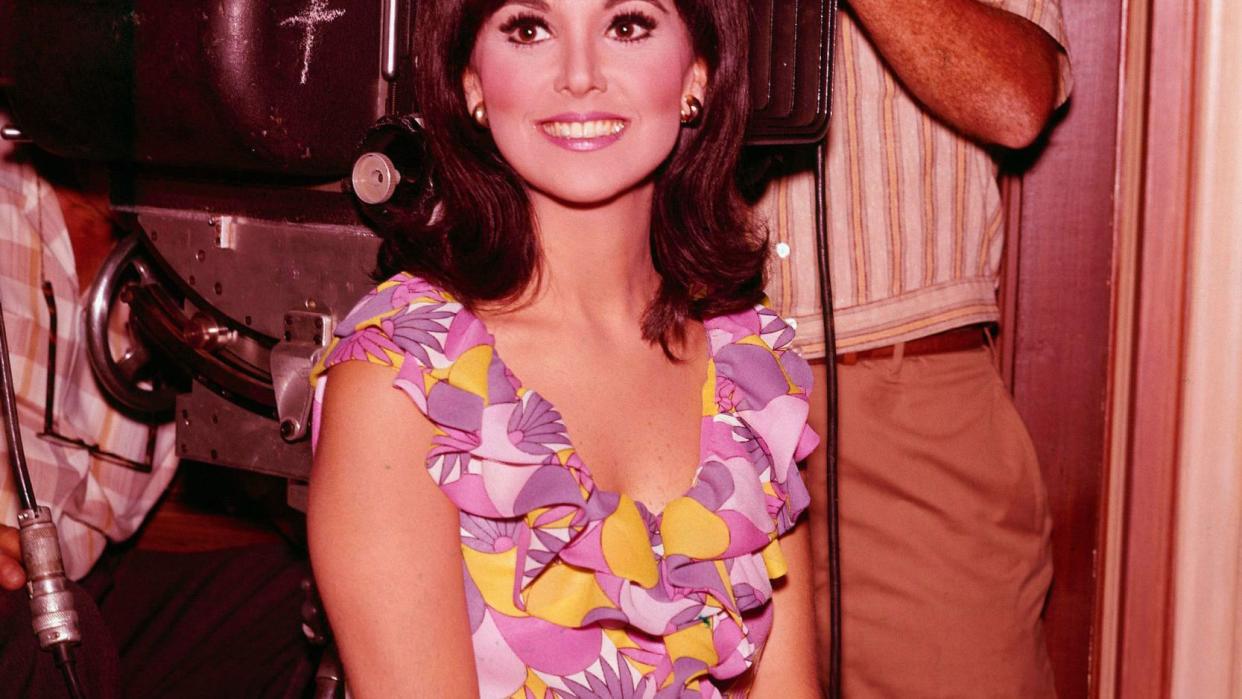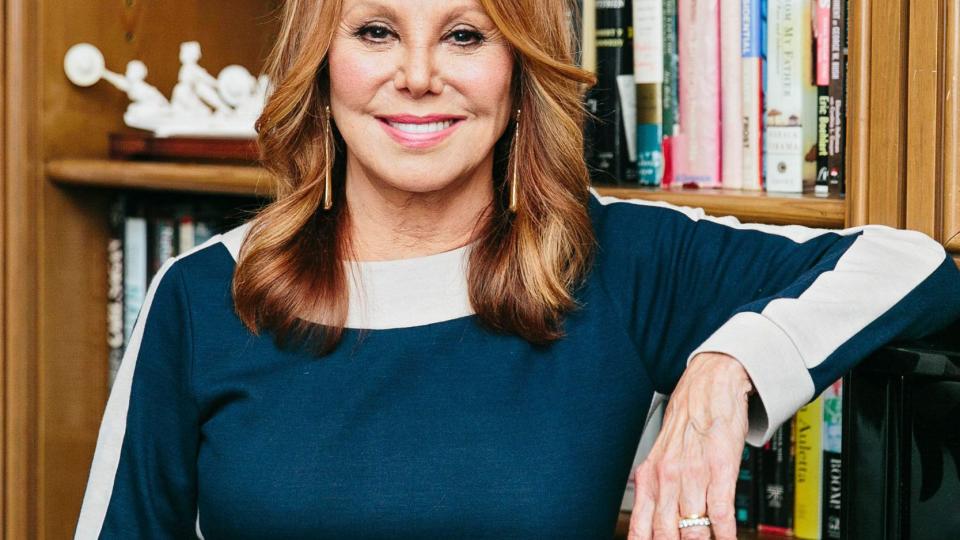How That Girl Star Marlo Thomas Found Success on Her Own Terms

- Oops!Something went wrong.Please try again later.
- Oops!Something went wrong.Please try again later.
- Oops!Something went wrong.Please try again later.
ABC Photo Archives/Getty Images
I have a favorite saying that hangs near my desk: “Never face the facts.” Because the truth is, if you do, you probably won’t get out of bed in the morning. I love this quote because in life there will always be someone who’ll tell you that the odds are against you. People said to my father [Danny Thomas], “You can’t build a hospital for sick children. You’re a comedian.” And they said to me, “You can’t create a television series about a single working girl. No one has ever done that.” But I was raised to tune out the naysayers and follow my dreams.
After I graduated from college, all my friends were getting married. I was a bridesmaid 17 times, which was wonderful. But I remember looking around, saying, “I don’t want that.” I had other plans.
I started working on my show, That Girl, in 1965. I was 26 years old and one of the youngest women ever to produce their own TV show, following Lucy [Lucille Ball]. And let me tell you, it wasn’t easy. I was surrounded by men, and many didn’t want to be in a situation where a woman had the power. They didn’t want their paychecks signed by a woman either.
It was hard to even get the show on the air because the network said nobody would watch a single girl who didn’t want to get married and wanted a career instead. And they also said nobody wanted to watch a show starring Marlo Thomas because, well, nobody knew who the hell I was.
It all seemed pretty doomed. But then the night we went on the air, something magical happened: We beat the competition. And that was because [my character] Ann Marie wasn’t that revolutionary. There were women all over America who wanted to be that girl — the one who didn’t settle down right out of her parents’ house but wanted to go into the world and figure out who she was.

TAWNI BANNISTER/The New York Times/Redux
I was thrilled about the success of the show, but I wasn’t prepared for the criticism on the set. Instead of saying I was smart and organized, they’d say I was tough and aggressive. There was a running joke that when they couldn’t find me, they’d say, “Oh, she’s just in the men’s room having a meeting with Lucy.” The derogatory remarks about the fact that I was a woman with power always hit below the belt.
The first year of That Girl, everybody on staff was a man except for the costume designer, the hairdresser, and me. There I was, doing a show about an independent single woman with scripts written only by men. After reading a scene, I’d say, “Well, a woman wouldn’t say that.” And they’d say, “Yes, but it’s funny.” The problem was it wasn’t truthful.
By Season 2, I was hiring female writers. That time in my life taught me that there is safety in numbers. We all need to surround ourselves with other women who work the way we do in every field. I seemed like a freak of nature for thinking that way, but even though there weren’t many women writing comedy at the time, we found them.
For the last episode the network and Clairol, our sponsor, wanted Ann Marie and her boyfriend, Donald [played by Ted Bessell], to have a wedding. I said, “I can’t do it. These women have followed her for five years, and I can’t say to them now that the only happy ending is a wedding.” And so the last show ended up being Ann Marie taking Donald to a women’s-lib meeting. The network wasn’t happy, but I was. It made the audience happy too. I got tons of mail that said, “Thank you for not copping out.”
At the time I never wanted to be married. That’s why it didn’t happen on the show. But I’ve learned if you find the right mate, marriage can be the cushion of life. Eventually, I did meet my match. And even though I’ve won Emmys and been awarded the Presidential Medal of Freedom and accomplished all sorts of things, my 39-year-marriage to my husband, Phil [Donahue], is one of my proudest achievements.
In the end, being a strong woman isn’t about any one thing you do. It’s about looking at your life and continuing to do — and go after — the things you believe are right for you, and realizing that you don’t have to color between the lines to get them.
— As told to Jennifer Ferrise
Thomas is an actress, a producer, an author, and an activist. She serves as director of National Outreach for St. Jude Children’s Research Hospital, founded by her father, Danny Thomas.
For more stories like this, pick up the August issue of InStyle, available on newsstands, on Amazon, and for digital download July 19.

